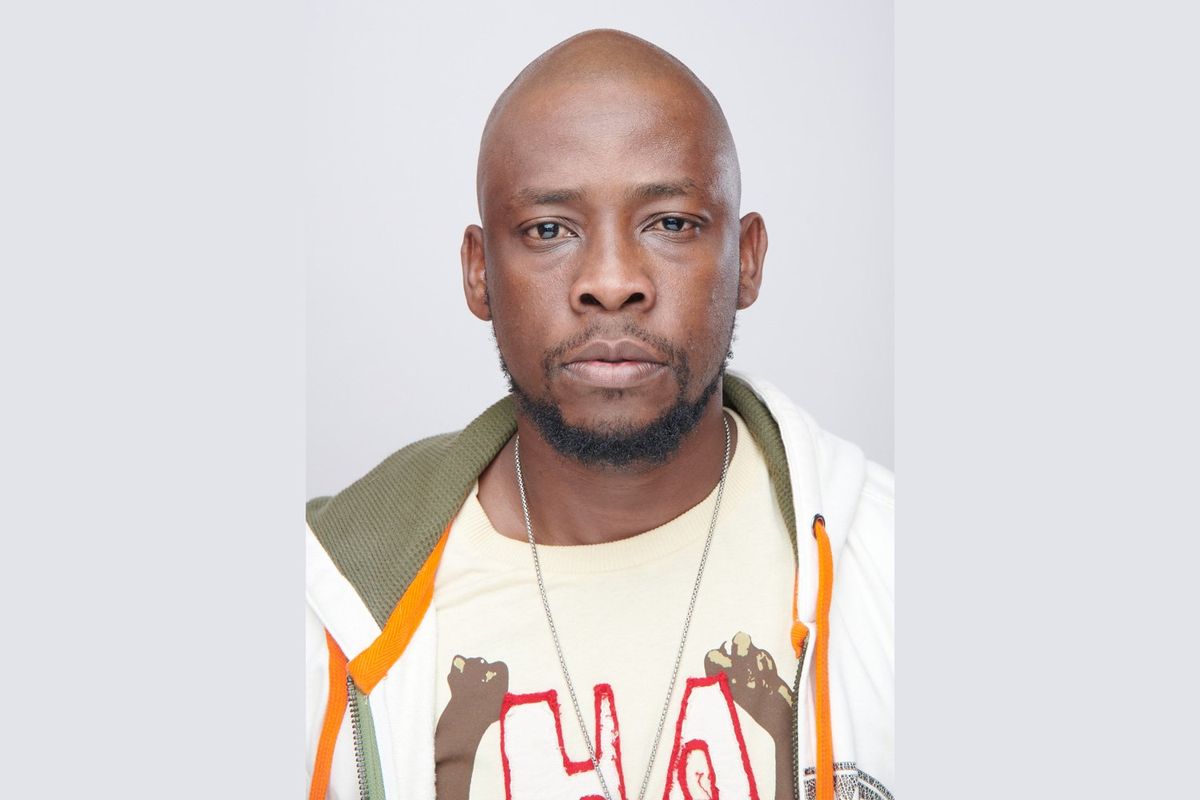Wiseman Mncube on Playing Mandoza
The SAFTA-winning actor takes on the late kwaito superstar in the BET Africa biopic series.

Before a word has been uttered or even a single beat has been heard in Nkalakatha: The Life of Mandoza, a disclaimer pops up on the screen: “This biopic is made in love and respect to the legacy of Mandoza, Mdu Tshabalala.” And then, vox pops of people on the streets of South Africa talking about “Nkalakatha,” and the way the kwaito track shaped popular culture in the country.
It’s the crossover track that “white people dance to like crazy,” the track that spun Mandoza – born in Zola, Soweto, as Mduduzi Edmund Tshabalala – into the stratosphere of kwaito music, into a level of fame he’d only ever dreamed about. It’s also the name of his multi-platinum debut album, released in 2000, 16 years before he’d pass away at the age of 38 after battling brain cancer.
BET Africa’s six-part biopic, which kicks off on August 16th, aims to go deeper into the history of not just the song itself, but the man who made it the legendary earworm that it became. Nkalakatha: The Life of Mandoza is a dramatization of Mandoza’s life from his days growing up in a religious household to his rise in national fame and eventual tragic death. Directed by Zuko Nodada (Matatiele, Fatal Seduction), Mandoza is portrayed in the series by SAFTA-winning actor Wiseman Mncube, who’s been playing a historical figure of another kind in Shaka iLembe, that of Zwide.
Before production began, he spent time in Zola, and visited Mandoza’s grave, saying he felt a deep sense of responsibility in paying homage to his legacy. Mncube spoke to OkayAfrica about taking on the role of a lifetime.
The interview below has been edited for length and clarity.
When did you become aware of the biopic and what interested you most in wanting to take on the role of Mandoza?
The process was quite hectic since I was still shooting with another production so it almost didn’t happen, until after some discussion took place and an agreement was reached. I was aware two years ago, when [director] Zuko Nodada called and told me that he would like to have me part of it and I was like, yeah! I mean who wouldn’t wanna be part of a production of this multitude?
What does Mandoza mean to you, as a person, as a musician; were you a fan of his music going into the production? Had you ever seen him perform?
Mandoza was my king like any other. Growing up, I listened to his songs and would see myself as an inkalakatha (top dog). Unfortunately, I had never seen him perform but watched his videos kakhulu (a lot).
Mandoza’s voice was his signature — you have a similarly deep voice, but was there anything you needed to do to get it just right in portraying him?
[Chuckles] No, I just trust the voice that I have, and ran with it ‘cause I didn’t want to act him but I wanted to live and be him. ‘Cause as soon as I change my voice automatically in my head I will be now acting to be him, which is not what I wanted. I wanted to become him and be original.
Mandoza’s original wardrobe is used in the series, how did that help you in stepping into his shoes, so to speak?
Yooooh! At first it was scary and overwhelmingly heavy. Every time I wore his clothes my body would vibrate and I could feel his spirit. So I would just pray-talk to him via prayer to guide protect and help me through this journey of telling his story.
Nkalakatha, The Life Of Mandoza: Wiseman Ncube | #BETNkalakatha #BETAfricaOriginalwww.youtube.com
Did anything surprise you about his story while you were preparing to play him?
There is a lot that surprised me but one thing that stood out for me was the way he loved his family, even through the times where he was driven by fame. He never forgot his wife and kids and the boys he started with in Chiskop.
How did it help having Mandoza’s widow Mpho Tshabalala involved in the production as executive producer? Were you able to ask her about any details?
Having sis Mpho helped a lot. She was there from day one until the end, holding my hand every step of they way. I asked her a lot; she gave me a lot of insight into her life with the legendary man himself.
What do you think Mandoza’s legacy is today?
His legacy still lives on. To take a stand and believe in yourself. The world is your oyster.
- Remembering Mandoza: The Kwaito Star's 10 Best Songs ›
- Costa Titch’s Debut Album ‘Made in Africa’ is a Delightful Collection of Catchy Club Bangers ›
- From Mbube to Amapiano: South African Music in All Its Glory ›
- The 20 Best South African Songs of 2022 So Far ›

